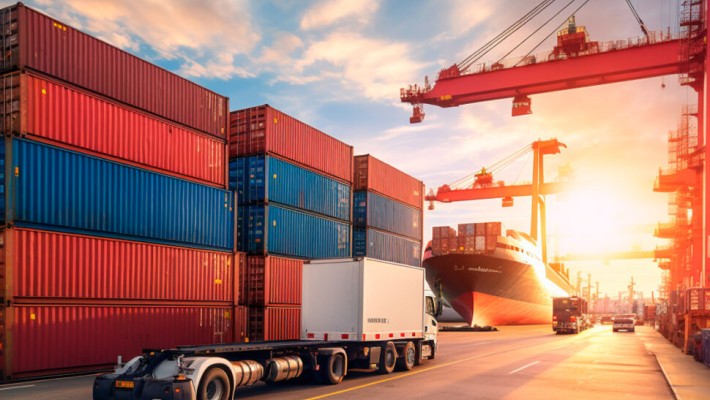Freight Forwarder Insights
Huin International Logistics Latest Articles
Comprehensive Guide to Freight Forwarding: Everything You Need to Know
If your company is involved in the global transportation of products or orders, you may already be familiar with the concept of freight forwarding.
This comprehensive guide will walk you through the essentials of freight forwarding, its various processes, and help you determine if it's a service your business requires.
In partnership with our international associates, we offer expert freight forwarding services. Further details about our International Transport Solutions are available here.
Understanding Freight Forwarding
Freight forwarding is a service provided by individuals or companies who manage the logistics of shipping goods on behalf of importers and exporters. By handling these responsibilities, freight forwarders reduce the stress associated with transportation logistics for businesses and ensure efficient operations. Typically, a freight forwarder acts as an intermediary between the sender and transportation providers, with minimal involvement in the actual movement of goods.
The scope of freight forwarding extends beyond merely arranging transportation; it is a critical and often intricate process that includes logistics management, compliance with legal requirements, negotiations, and more. The primary modes of transportation managed by freight forwarders include air, sea, and road. Although less common, rail transportation can also be facilitated.
Defining a Freight Forwarder
A freight forwarder can be an individual or a firm specializing in transportation logistics. Their primary function is to coordinate and oversee the movement of goods. Unlike roles with specific titles like distribution manager, independent freight forwarders often merge the duties of various logistical positions.
Key Elements of Freight Forwarding
Freight forwarding encompasses several crucial responsibilities, including:
-
Route Planning and Carrier Selection: A proficient freight forwarder is adept at determining the optimal transportation routes and modes, as well as selecting reliable carriers. They leverage their expertise to evaluate various options and suggest the most efficient and trusted routes and carriers.
-
Customs Clearance: The vast majority of international shipments require proper documentation and clearance upon arrival in a new country. Given the varying regulations and allowances globally, freight forwarders must possess a robust understanding of the necessary compliance measures for each destination. For instance, when importing goods into the China, the freight forwarder handles customs arrangements and ensures adherence to HMRC regulations.
-
Documentation and Licensing: Beyond customs paperwork, transporting goods involves managing extensive documentation, including invoices, certifications, and statements. Ensuring the shipper has all necessary documents for processing and compliance falls under the freight forwarder's responsibilities.
-
Storage and Packaging: Freight forwarders may also offer storage solutions and packing services due to their infrastructure or industry connections. Proper packaging is vital for shipment integrity, preventing damage to fragile items and addressing environmental concerns during transit.
-
Transporting Hazardous Materials: Specialized freight forwarders handle the transport of dangerous goods, navigating the extensive protocols and regulations that differ significantly from standard cargo. Such forwarders must be thoroughly familiar with the compliance requirements specific to each type of hazardous material.
This overview highlights the comprehensive roles and expertise required in freight forwarding, ensuring secure and efficient global transportation of goods.
The Role and Advantages of Freight Forwarders
Companies have the option to manage their entire shipping process independently, but leveraging the services of freight forwarders can ensure that all documentation is accurately handled and shipments are efficiently managed. Given the complexities and international nature of cargo transport, businesses greatly benefit from expert guidance. Engaging a freight forwarder, equipped with specialized knowledge, can significantly simplify the process for businesses.
Advantages of Utilizing Freight Forwarders
Efficiency: Experienced freight forwarders are adept at identifying optimal routes and choosing the most suitable transportation methods, enabling swift resolution of delays.
Problem Solving: When issues arise, companies may struggle to address them independently. Freight forwarders can foresee and mitigate common challenges.
Cost-Effectiveness: Investing in freight forwarding services often results in financial savings, thanks to their extensive network connections that provide competitive rates.
Expertise: Freight forwarders bring valuable expertise and nuanced understanding, particularly advantageous for businesses unfamiliar with international logistics.
Reliability: Managing the transportation of goods can be overwhelming, especially for businesses unfamiliar with carriers. Freight forwarding services mitigate risks and ensure a dependable service.
